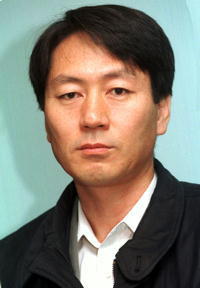 |
Former prime minister Nakasone Yasuhiro has long styled himself an opponent of nuclear armament. But at a policy seminar put on by a research center he heads, he said that "in order to be prepared for future changes in the international community, it would be good to have already considered the nuclear question." Let’s look back in time at the issue, as well. Prime Minister Abe says the man he respects the most and most wants to emulate is his maternal grandfather, Nobusuke Kishi, who was once classified as a Class A war criminal before later becoming prime minister. While in office, Kishi sent the Americans an unofficial message in which he said Japan might go nuclear if it felt the need. Alarmed, the United States hurriedly moved to strengthen the U.S.-Japan alliance. Fomer prime minster Ikeda Hayato, the standard bearer of Japan’s fast-paced growth years ago, looked at U.S. Secretary of State Dean Rusk in November 1961 and said, "There are members of the cabinet who want the bomb." In December 1962, Kishi’s younger brother, Sato Eisaku, told U.S. ambassador to Japan Edwin Reischauer that it "is common sense that if someone else has nukes, you need to have them, too." In 1999, vice minister of defense Nishimura Shingo announced that "it would be advantageous for Japanese security to have nuclear weapons" before stepping down. In a 2001 magazine interview, a high-ranking government official said, "Japan could be armed with nuclear capabilities in three years." On April 6, 2002, Democratic Party chairman Ozawa Ichiro announced that he had once told a Chinese Communist Party intelligence official that "making a nuclear warhead is simple." He said Japan had the plutonium it needed in its power reactors. "We can keep from falling behind in military preparedness if we just decide that’s what we want." Back on May 13, 2002, when he was deputy chief cabinet secretary, Abe stood before a room full of students at Waseda University and said that the constitution does not prohibit Japan from having nuclear weapons "whether nuclear or conventional, as long as it does not exceed what we need for self defense." A U.S. Defense Department white paper published in 2003 predicts that Japan will go nuclear by 2050. On February 25, 2005 Omae Kenichi, an economic commentator known quite well in Korea, had this to say: "Japan can make nuclear bombs in 90 days if it wants to, and it has the technology it needs to put them on missiles. We already have [rockets] that are at the level of intercontinental ballistic missiles, and we have more than 50 tons of plutonium stored away. That's enough to manufacture 2,000 nuclear warheads. Japan has already completed all the tests it would need to create an atomic bomb 30 to 40 years ago...Public opinion will change if we come to face a situation in which we have an actual threat in the form of nuclear arms in North Korea." A classified British document made public on December 28, 2005 says that in 1975 the head of the Japanese science and technology agency’s nuclear power department told the British ambassador that Japan has the ability to produce nuclear weapons within three months.





